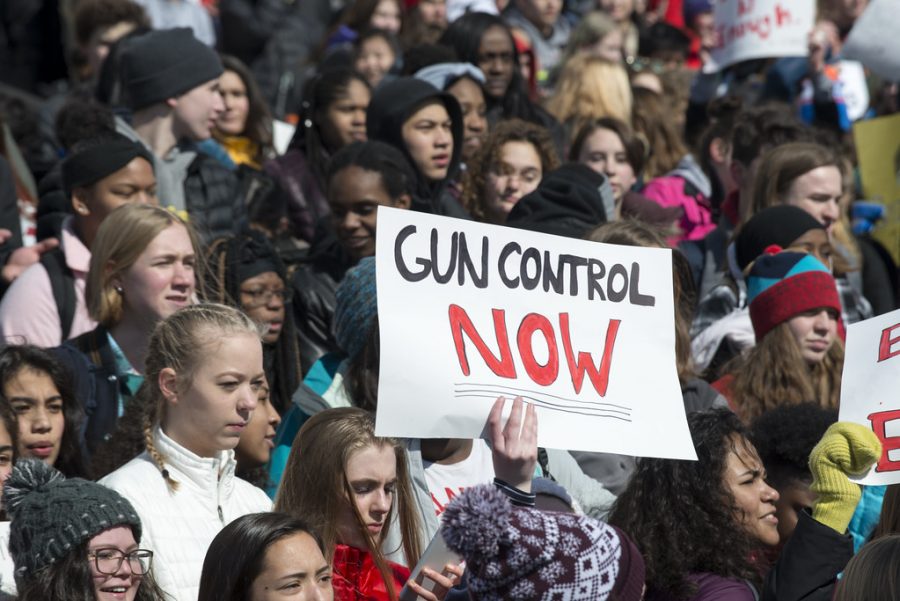Universal Background Checks: Effectiveness
The effectiveness of universal background checks is vital to the conversation about gun control.
March For Our Lives student protest for gun control
February 4, 2020
Santa Clarita, California. Mobile, Alabama. Charlotte, North Carolina.
All the locations of recent school shootings.
Gun control has been a topic of discussion for years, and America is at the center of it. A common solution to this problem is universal background checks.
Universal background checks would mean that all sellers of guns, privately, at a gun show, in a store, or otherwise, must run a background check on the person the gun is being sold too.
Universal background checks are posed as the holy grail of gun control, but there is a major loophole. Criminals and people with mental disorders are able to make it past the system without a black mark. The effectiveness of the implementation of universal background checks needs to be taken into consideration when talking about gun control.
Now, this loophole can be viewed in multiple ways. First, it is important to address the other means of getting a gun. The black market and stealing are options with or without universal background checks. According to the Center for American Progress, a gun is stolen in the U.S. every two minutes, and According to the DOJ, an estimated 287,400 prisoners possessed a firearm during their offense. The findings concluded 6 percent had stolen the weapon, 7 percent found it at a crime scene and 43 percent obtained it off the street or on the black market. More than 25 percent had received it from a family member or friend, or as a gift.
This percentage is too large, and if these criminals are not getting guns through legal means now, who’s to say they would later by going through a background check? Not only is this a problem that needs to be addressed but there are also loopholes built into the background check system itself. Thousands of cases of mental illnesses and criminal records go unreported to the system.
The National Rifle Association reports that, “… about 7 million records are absent from the system” based on a 2013 report by the nonprofit National Consortium for Justice Information and Statistics. That report determined that “at least 25% of felony convictions…are not available.” The Chicago Tribune reported that this gap may have, “contributed to the shooting deaths of 26 people in a Texas church this week.”
It is clear that there are many cracks in the background check system, so it doesn’t appear as if instilling them as a form of gun control will be worthwhile. However, there is still proof of its efficiency. Researchers at the University of California found that Connecticut law requiring background checks was associated with a 40% reduction in gun homicides between 1996 and 2005. The reduction amounted to two hundred ninety six lives. There was also research from John Hopkins University finding that Missouri’s 2007 repeal of its handgun license law was associated with about a 23% increase in its firearm homicide rates.
Every life that can be saved is precious. Even if background checks aren’t 100% efficient, there is evidence of lives being saved because of it. So universal background checks: is it worth it? It depends on the perspective. Is the country willing to place millions of dollars aside for a system that is not foolproof? Or is the United States going to continue to allow these mass shootings become the norm.












